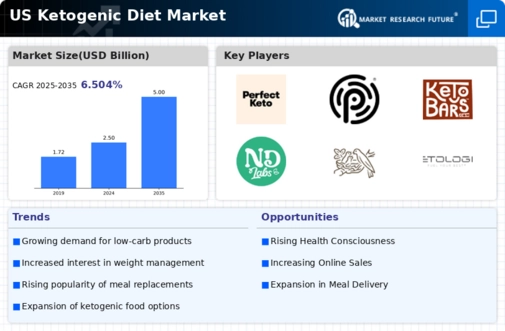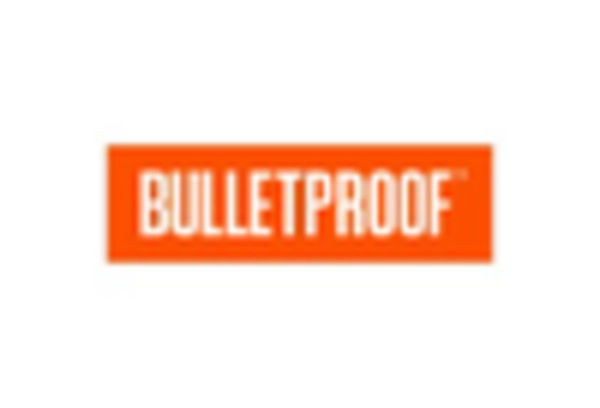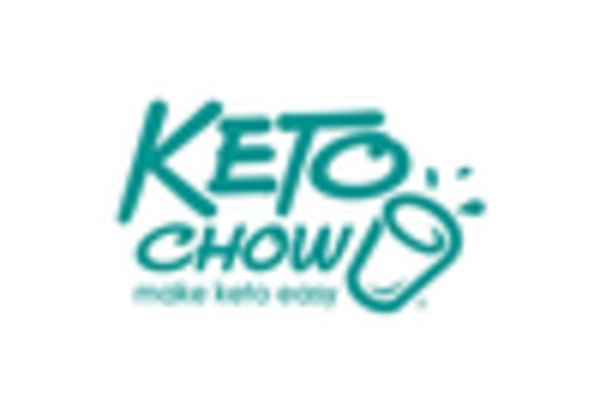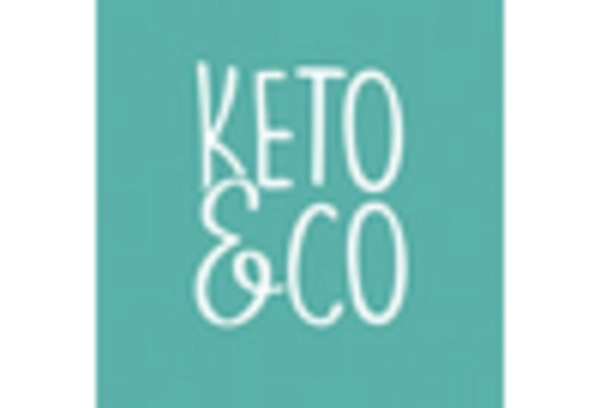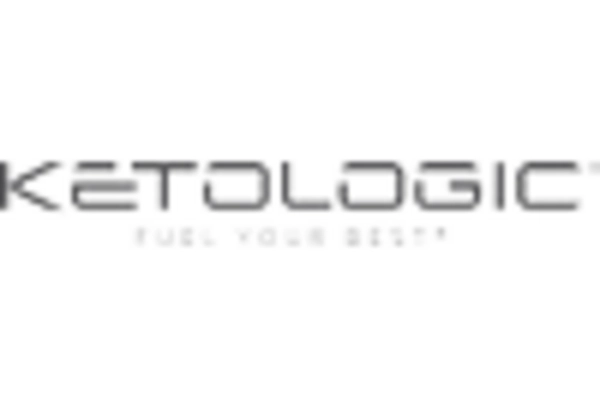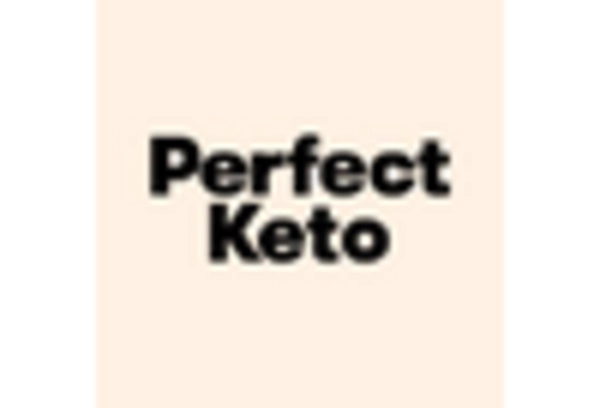Expansion of Product Offerings
The ketogenic diet market is witnessing a notable expansion in product offerings, catering to diverse consumer preferences. Food manufacturers are increasingly introducing a variety of ketogenic-friendly products, including snacks, meal replacements, and beverages. This diversification is essential as it addresses the growing demand for convenient, ready-to-eat options that align with ketogenic principles. Market data indicates that the sales of ketogenic products have increased by over 25% in the past year alone, reflecting a robust consumer interest. As more brands enter the market with innovative offerings, the ketogenic diet market is poised for continued growth.
Growing Interest in Alternative Diets
The ketogenic diet market is benefiting from a broader trend of growing interest in alternative dietary approaches. As consumers become more health-conscious, they are exploring various diets that promise weight loss and improved health outcomes. The ketogenic diet, with its unique macronutrient composition, stands out among these alternatives. Market Research Future indicates that approximately 20% of the US population is actively experimenting with or following alternative diets, including ketogenic. This trend suggests a potential for continued growth in the ketogenic diet market as more individuals seek to adopt dietary strategies that align with their health goals.
Increased Awareness of Health Benefits
The ketogenic diet market is experiencing a surge in consumer awareness regarding the health benefits associated with low-carbohydrate, high-fat diets. Research indicates that adherence to a ketogenic diet may lead to weight loss, improved metabolic health, and enhanced cognitive function. As more individuals seek effective dietary solutions, the ketogenic diet market is projected to grow significantly. In fact, a recent study suggests that approximately 30% of adults in the US are actively considering or have adopted a ketogenic lifestyle. This heightened awareness is likely to drive demand for ketogenic products, thereby expanding the market further.
Rising Prevalence of Lifestyle Diseases
The ketogenic diet market is responding to the increasing prevalence of lifestyle-related diseases such as obesity, diabetes, and cardiovascular conditions. As healthcare professionals advocate for dietary changes to combat these issues, the ketogenic diet is often recommended due to its potential benefits in managing weight and improving metabolic health. Data suggests that nearly 70% of adults in the US are classified as overweight or obese, creating a substantial market for effective dietary solutions. Consequently, the ketogenic diet market is likely to see sustained growth as more individuals seek dietary interventions to improve their health.
Influence of Social Media and Influencers
The ketogenic diet market is significantly influenced by social media platforms and health influencers who promote ketogenic lifestyles. These platforms serve as vital channels for sharing recipes, success stories, and tips, thereby fostering a community around the diet. The impact of social media is evident, as studies show that nearly 40% of individuals in the US are inspired to try the ketogenic diet after seeing content online. This digital engagement not only raises awareness but also drives sales of ketogenic products, contributing to the overall expansion of the ketogenic diet market.


